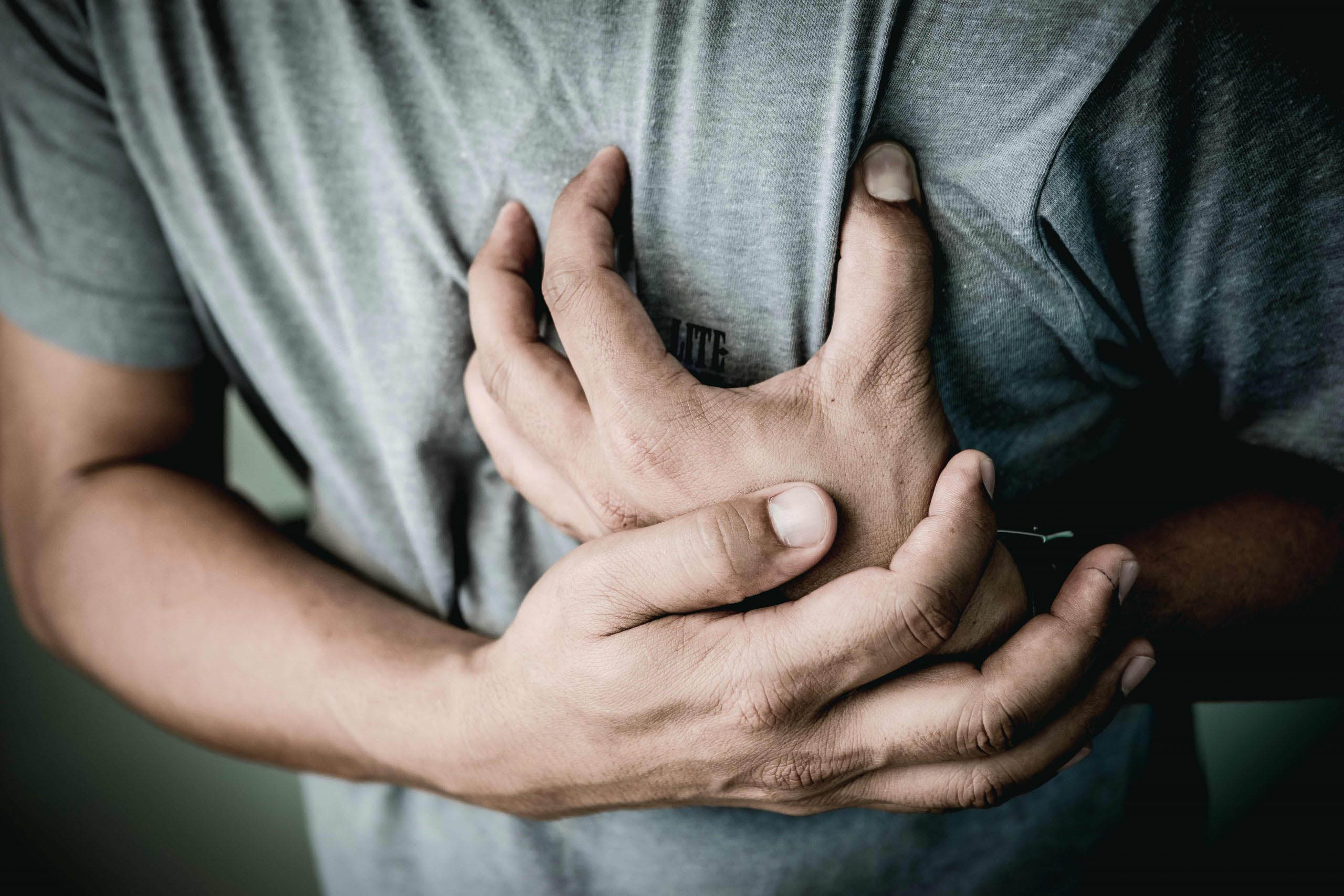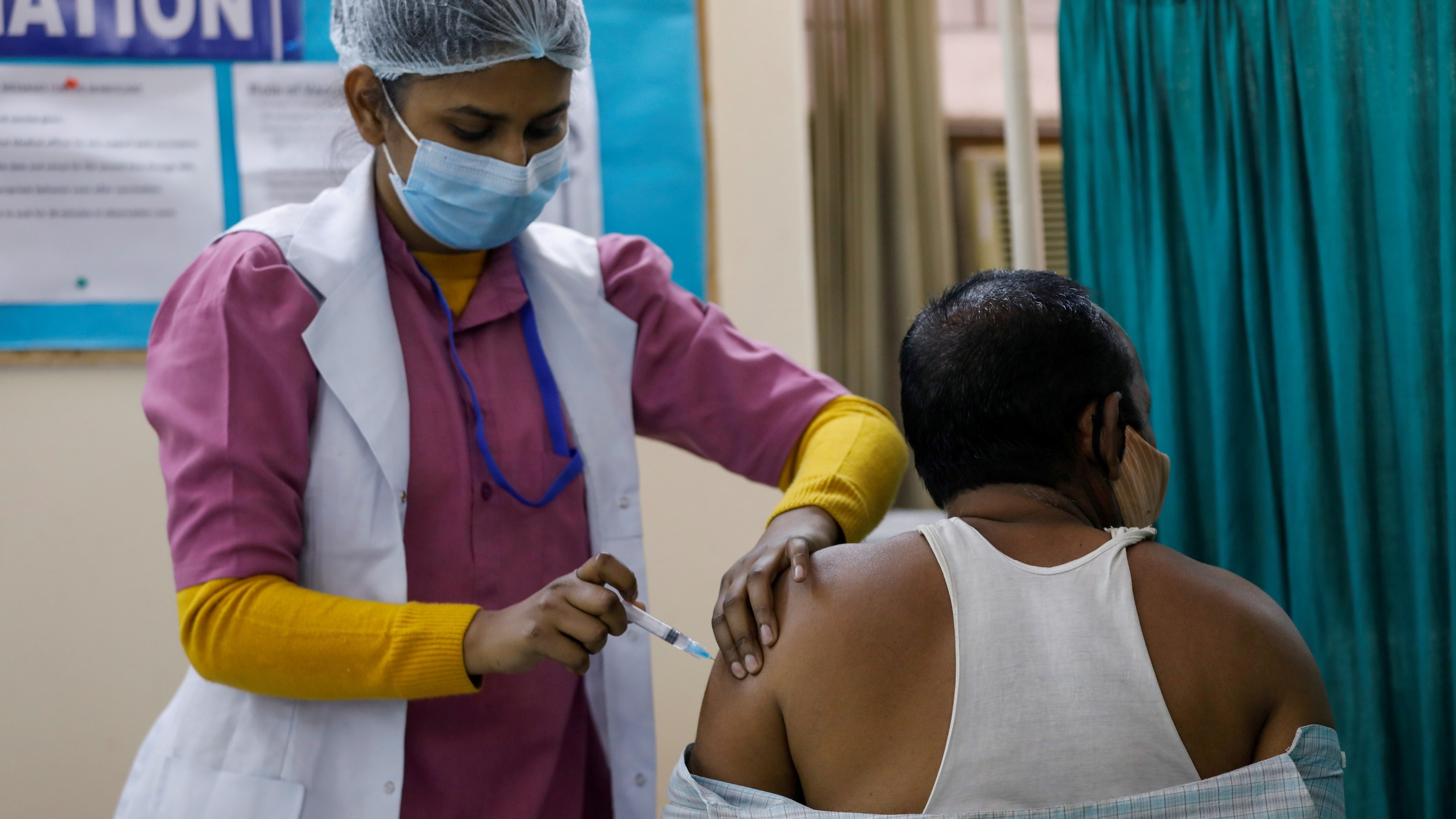
Heart attack has become a dreaded word owing to several recent deaths of young and middle-aged people post coronavirus. Is there a correlation between covid infection, its vaccine and the risk of heart disease? A report by Sunny Sharma
In the most recent instances of TV celebrities, namely a stand-up comedian Raju Srivastav, who was admitted to AIIMS for over 45 days after he suffered a heart attack. Last month, actor Sidharth Shukla breathed his last due to a massive cardiac arrest. A gym trainer collapsed on his chair after a workout as well as videos of a man dressed as Hanuman dancing in Ram Leela and collapsing while performing, other younger people have also died while performing Garba in Gujarat.
Covid infection & heart risk
New studies have revealed that Covid infection has severely raised the risk of heart disease, especially among the younger age groups. The increasing number of deaths due to heart attack in the country and abroad is concerning. A sudden surge in deaths due to heart attack during the Covid pandemic has baffled clinicians, policymakers and the common man equally. The experts are still not sure if and how these deaths are correlated with Covid.
However, according to a study based on the US Department of Veterans’ Affairs data, people who had contracted Covid face a substantially high risk of cardiovascular issues, including heart attack and stroke. These problems may also happen in people who had relatively mild Covid and have fully recovered from it.
In a recent study published in a journal, Nature, it was reported that people who recovered from severe Covid had extremely high risk of developing cardiac issues till a year later, including heart swelling and lung thromboembolism, which were up to 20-time higher than those uninfected. Further, those who had mild infection and recovered at home without hospitalisation also had risk of heart attack (8 per cent higher) and heart inflammation (2.5-fold higher).
A study at Yale University reported the presence of an excessive number of auto -antibodies in the people hospitalised with severe Covid. Most of these antibodies are against one’s own tissues and cells and can inadvertently attack the body tissues, including the heart, and weaken their architecture. The coronavirus enters through the ACE2 receptor found in organs and tissues such as the lungs, neurons, liver, kidney, intestine and also the heart and blood vessels. The clots may block the blood supply to vital organs like the heart or brain and cause heart attack or stroke, respectively.
Vaccine effects?
“Recently, we have seen a lot of young people dying of acute heart attack and cardiac arrest in particular while doing physical activity like dancing, driving, at wedding ceremonies and all. Now post Covid vaccine too, we have seen an increase in cardiac events even when infected with a milder form of Covid infection. Waves spurred by Omicron are lighter but they have got their own effect,” says Dr Viveka Kumar, Principal Director & Chief of Cath Labs (Pan Max) – Cardiac Sciences. “Vaccine is not a complete answer yet because vaccines also led to certain side effects and caused cardiac events. There are people who have had only vaccines and within a week or a month’s time, we saw that a patient came down with a heart attack. Side effects of the vaccine are of lesser intensity but Covid infection is causing increased cardiovascular events especially cardiac arrest,” adds Dr Kumar.

Dr Mukesh Goel, Senior Consultant Cardiothoracic and Heart and Lung Transplant Surgery of Indraprastha Apollo Hospitals, says, “It’s now known that Covid causes widespread blood clots in small vessels of various body organs including the heart. It also causes inflammation of heart muscle called myocarditis”.
Even a mild case of COVID-19 can increase a person’s risk of cardiovascular problems for at least a year after diagnosis, another new study1 shows. Researchers found that rates of many conditions, such as heart failure and stroke, were substantially higher in people who had recovered from COVID-19 than in similar people who hadn’t had the disease. “It doesn’t matter if you are young or old, it doesn’t matter if you smoked, or you didn’t,” says study co-author Ziyad Al-Aly at Washington University in St. Louis, Missouri, and the chief of research and development for the Veterans Affairs (VA) St. Louis Health Care System. “The risk was there.”
North-western University in Chicago, Illinois has found in its research, “People who had recovered from COVID-19 showed stark increases in 20 cardiovascular problems over the year after infection. For example, they were 52% more likely to have had a stroke than the contemporary control group, meaning that, out of every 1,000 people studied, there were around 4 more people in the COVID-19 group than in the control group who experienced stroke. The risk of heart failure increased by 72%, or around 12 more people in the COVID-19 group per 1,000 studied. Hospitalization increased the likelihood of future cardiovascular complications, but even people who avoided hospitalization were at higher risk for many conditions”.
Rising heart attacks
New data analysis from the Smidt Heart Institute at Cedars-Sinai found that deaths from heart attacks rose significantly during pandemic surges, including the COVID-19 Omicron surges, overall reversing a heart-healthier pre-pandemic trend.
Prior to the COVID-19 pandemic, heart attacks were the leading cause of death worldwide but were steadily on the decline. However, the new study—recently published in the peer-reviewed Journal of Medical Virology—shows that heart attack death rates took a sharp turn and increased for all age groups during the pandemic.
Using data from the Centers for Disease Control and Prevention’s National Vital Statistics System, the Cedars-Sinai researchers identified 1,522,699 deaths from heart attacks—medically called acute myocardial infarctions—between April 1, 2012, and March 31, 2022.
Investigators then compared age-related mortality rates between pre-pandemic and pandemic periods, as well as demographic groups and regions.
Reasons for the spike in heart-related conditions could also be related to psychological and social challenges associated with the pandemic, including job loss and other financial pressures that can cause acute or chronic stress leading to cardiac disease. The research team members say they have long known that infections such as the flu can increase risk for heart disease and heart attack, but the sharp rise in heart attack deaths is like nothing seen before.
Key findings from the study include:
*In the year before the pandemic, there were 143,787 heart attack deaths; within the first year of the pandemic, this number had increased by 14% to 164,096.
*The excess in acute myocardial infarction-associated mortality has persisted throughout the pandemic, even during the most recent period marked by a surge of the presumed less-virulent Omicron variant.
*Researchers found that although acute myocardial infarction deaths during the pandemic increased across all age groups, the relative rise was most significant for the youngest group, ages 25 to 44.
*By the second year of the pandemic, the “observed” compared to “predicted” rates of heart attack death had increased by 29.9% for adults ages 25-44, by 19.6% for adults ages 45-64, and by 13.7% for adults age 65 and older.












